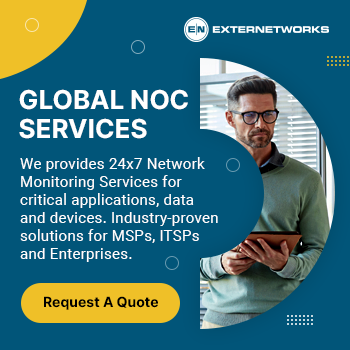How to Choose the Right On-Demand IT Support Provider

In today’s digital age, having reliable IT support is crucial for businesses of all sizes. But with so many options available, how do you choose the right on-demand IT support provider for your specific needs?
As technology continues to advance at a rapid pace, businesses are increasingly relying on IT support to keep their operations running smoothly. However, not all IT support providers are created equal, and making the wrong choice can lead to costly downtime and frustration.
Choosing the right on-demand IT support provider is essential for the success of your business. With the right provider, you can ensure that your technology infrastructure remains secure, efficient, and up-to-date. This article will provide you with valuable tips and insights on how to choose the right on-demand IT support provider that aligns with your business goals and requirements.
Choosing The Best Outsourced IT Support Services
There are several key factors to consider in order to make the best choice for your company’s needs.
First and foremost, it is important to ensure that the outsourced IT support provider aligns with your values and goals. This means understanding the provider’s approach to customer service, their commitment to quality, and their ability to meet your specific needs.
Expertise in your operating system is another critical factor to consider. It is essential that the IT support provider has in-depth knowledge and experience working with the specific operating systems and platforms your business relies on.
How do I choose an outsourced IT support service?
With a wide range of service providers available, each offering a different set of services, it can be overwhelming to find the one that is the best fit for your business.
Experience
Finding a provider with industry-specific experience can bring numerous benefits to your business. Having specialized knowledge in your particular industry means that the provider understands your specific needs, challenges, and compliance requirements. This knowledge allows them to tailor their services to meet your unique demands effectively.
Location
The proximity of the provider to your business can have a direct impact on your company’s efficiency, response time, and overall productivity. Having a nearby IT support provider offers several advantages. First, it allows for quick fixes and faster response times. If you encounter an IT issue or require technical assistance, a nearby provider can quickly dispatch their team of tech experts to your location. This minimizes downtime and ensures that your operations can resume promptly.
Reliability
Your business relies heavily on technology to operate smoothly, so it’s crucial to have a support service that you can depend on.
Reliability means that the IT support provider consistently delivers high-quality services and meets their commitments. They should have a track record of providing dependable solutions and quick resolutions to IT issues.
Efficient response times are a key factor in reliability. When you encounter an IT problem, you need prompt assistance to minimize downtime and productivity loss. A reliable IT support provider understands the urgency of the situation and ensures that their response times are swift.
Services
Look for providers that offer a wide range of services that can be customized to meet the specific needs of your business. A good IT support provider should be able to offer a variety of services including network security, mobile device management, technology solutions, managed IT services, and much more. The provider should have an expert team of tech professionals who can efficiently handle all your technology issues.
Scalability is another important factor to consider. As your business grows, your IT support needs will also increase. Make sure that the IT support provider you choose is capable of scaling their services accordingly. This means having a support team that can handle your growing demands without compromising on quality.
Dedicated Account Manager
A dedicated account manager plays a crucial role in providing support and addressing any queries or concerns you may have. They act as a single point of contact, making it easier for you to communicate your needs and receive prompt assistance. With a dedicated account manager, you can rest assured that someone is always available to help you navigate any technical challenges that may arise.
Having a dedicated account manager ensures that you receive personalized support that is specific to your business’s unique needs. They have a deep understanding of your systems and processes, allowing them to provide proactive recommendations and anticipate potential issues before they become major problems. This level of personalized support helps to establish a strong partnership between your business and the IT support provider.
How much will it cost?
IT support services are typically billed per user, per month, which means that the more users you have, the higher the cost will be. It’s essential to understand this pricing structure and carefully evaluate how it aligns with your budget and needs.
However, it’s not just about the base cost per user per month. It’s also crucial to be cautious of any hidden costs or additional fees that may come along the way. Some IT support providers may charge extra for certain services or have hidden charges that only become apparent later on. That’s why it’s essential to thoroughly review the terms and conditions and ask the potential service provider about any potential hidden costs before signing any agreements.
A reputable IT support company should be transparent about their pricing structure and clearly communicate all the costs involved. They should provide a detailed breakdown of their services and fees, ensuring that you have a clear understanding of what you are paying for. This transparency helps you forecast and budget for your IT support expenses accurately.
24/7 Support
Technological issues can arise at any time, and without immediate attention, these problems can significantly impact business operations and productivity. That’s why it’s crucial to choose an IT support provider that offers 24/7 support.
One of the major benefits of having an IT support provider that offers round-the-clock management and maintenance is the ability to spot and resolve network issues before they escalate. With 24/7 support, potential problems can be detected and addressed in real time, minimizing downtime and preventing major disruptions. This proactive approach ensures that your business remains up and running smoothly, even during non-business hours.
Consider Investing in Cloud Services
Investing in cloud services is quickly becoming a mandatory part of business operations, as the convenience offered by virtualization, cloud-based resources and SaaS provides businesses with the flexibility they need without having to invest heavily in additional hardware or personnel. With online capabilities of almost any kind readily available with the click of a button, companies can quickly and easily scale up their resources or access capacity when needed.
Approach to Cybersecurity
Regardless of your business size or experience level, it is important to have cybersecurity measures in place.
Managed IT service providers (MSPs) can offer different levels of support for network security and other aspects of IT management, allowing you to concentrate on your core competencies.
Many companies hire anaged IT service providers without considering their cybersecurity standards and practices. However, it is important to ensure that any managed IT services provider you consider hiring has strong security measures in place and understands your needs for protecting sensitive data.
Security and Compliance Considerations
When selecting an on-demand IT service provider, prioritizing data security and privacy is paramount. It is essential to safeguard sensitive information, customer data, and proprietary assets from breaches and unauthorized access. A robust provider should have encryption, access controls, and regular security audits in place, minimizing the risk of reputational and financial damage. Furthermore, compliance with industry regulations is critical, as different sectors have unique requirements, such as PCI DSS(Payment Card Industry Data Security Standard) or SOC 2(Service Organization Control 2).
Partnering with a provider experienced in your industry’s regulatory landscape reduces non-compliance risks and potential legal issues. Lastly, a comprehensive disaster recovery and data backup plan is vital for ensuring business continuity in the face of hardware failures, natural disasters, or cyberattacks. Regular testing and timely recovery capabilities minimize downtime, safeguarding your business operations and data integrity during unforeseen disruptions.
Support for Specific Technologies and Software
When considering an on-demand IT support provider, it is vital to assess their expertise in the technologies pertinent to your organization, ensuring that they possess a track record of proficiency in the hardware, software, and systems essential to your business operations. Additionally, their ability to seamlessly integrate and be compatible with your existing systems is crucial to avoid disruptions and inefficiencies.
This includes customizing software, configuring hardware, or recommending necessary upgrades to ensure a smooth transition. Furthermore, a forward-thinking approach is essential for future-proofing your IT support.
A provider with an eye on the future should not only address immediate issues but also offer solutions that anticipate your organization’s evolving technology needs, promoting scalability, flexibility, and readiness for emerging innovations. This approach ultimately enhances operational efficiency, minimizes downtime, and positions your organization to adapt to technological advancements seamlessly.
Conclusion
In conclusion, when it comes to IT support, businesses have the option to choose between managed services and on-demand services. Both models offer unique benefits and can be tailored to the specific needs of businesses.
Managed IT services provide businesses with a proactive approach to IT support. With a dedicated team of experts managing and monitoring their IT infrastructure, businesses can ensure improved security, increased productivity, and reduced downtime. Managed IT services also offer predictable costs and scalability, allowing businesses to easily adjust their IT support as their needs evolve.
On the other hand, on-demand IT services offer businesses the flexibility to access IT support as needed. This model can be particularly beneficial for businesses with fluctuating IT needs or when a specific issue arises that requires immediate attention. On-demand services allow businesses to quickly address IT challenges and ensure minimal disruptions to their operations.




